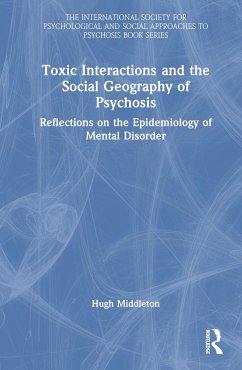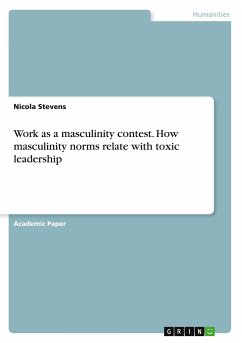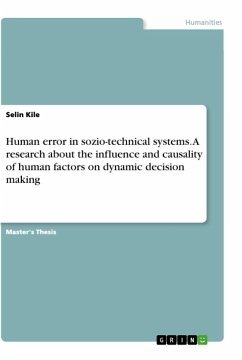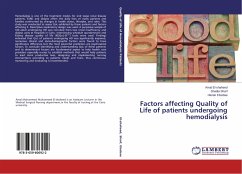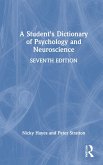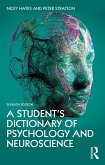"Dr Middleton's 'Toxic Interactions: The Social Geography of Psychosis' is an inspiring addition to the wonderful ISPS book series. By focusing on adverse childhood experiences, ethnicity, migration, urban life and other social issues it becomes clear how 'toxic interpretations of disturbing mental states' are at least as problematic as those states themselves. This perspective and the focus on recovery and therapeutic relationships is a refreshing antidote to the unsubstantiated, pessimistic and stigmatising 'medical model' of human distress that until recently has been so dominant" Professor John Read, author of 'Models of Madness' and 'A Straight Talking Introduction to the Causes of Mental Health Problems'
"Toxic Interactions is a clearly written, evidence-based account of the contemporary state of knowledge about the most difficult kind of mental ill-health we have, psychosis. This is an even-handed review of both neurobiological and sociological evidence in relation to the causes and distribution of this disorder, including a detailed discussion of its social distribution amongst urban, ethnic, early life, family experiences, and so forth. This 'social geography' has for too long been a peripheral focus for research, but with books like this, and efforts such as our own newly funded ESRC research on 'society and mental health', there is hope that there can be a much more balanced and productive basis for both interventions, covered here more briefly, and the humane social inclusion of those suffering from psychosis" Nick Manning, Professor of Sociology, ESRC Centre for Society and Mental Health, King's College, London.
"This book deserves to be widely read. The focus on the relational environment addresses important and very under-considered influences on mental health and wellbeing. The author grapples with the uncomfortable and, for psychiatry, inconvenient truth that experience of psychosis for many people is best understood not primarily as a biochemical disturbance but as arising from childhood adversity, family and life experiences, or ethnic and cultural minoritisation. His scholarly overview of the empirical evidence demonstrates the central importance of relationships, and their role in the vital recovery process of meaning-making. This book makes an original contribution of high relevance to clinical practice, and should be read by anyone wanting to understand how relationships and society, including the mental health system, can help or hinder mental health recovery" Mike Slade, Professor of Mental Health Recovery and Social Inclusion, University of Nottingham.
"There is growing authoritative disquiet that contemporary approaches that prioritise mental health difficulties as primarily stemming from biomedical irregularities do not stand up to closer examination. Hugh Middleton is an experienced psychiatrist and his erudite, balanced and composed writing is a most important addition to the growing literature on this most serious of contemporary matters for western society. Importantly, it points, with evidence, to a range of linked alternative understandings based on the nature of relationships at the crucial times in one's life in determining more severe mental distress. Each chapter takes a different relationship / social focus, such as adverse and favourable relations in formative years, in family life, in ethnic groups and in urban life. The most important chapter is the one on relationships between patients and their close associates with mental health service professionals and he provides convincing evidence as to the qualities of these relationships being central to outcomes. Therefore, this book highlights how a considerable shift of focus in society and in mental health services would lead to better mitigation of mental distress / disturbance. By clear implication Middleton is calling for a shift from a too exclusive medical science focus to a more inclusive social relationship science focus. This book merits very serious attention from policy makers and providers of mental health services and all others who sense that we had been barking up the wrong tree in much of our contemporary thinking about mental distress and how best to attend to it" Brain Martindale, Past President of ISPS and Honorary Member of the World Psychiatric Association.
"Toxic Interactions is a clearly written, evidence-based account of the contemporary state of knowledge about the most difficult kind of mental ill-health we have, psychosis. This is an even-handed review of both neurobiological and sociological evidence in relation to the causes and distribution of this disorder, including a detailed discussion of its social distribution amongst urban, ethnic, early life, family experiences, and so forth. This 'social geography' has for too long been a peripheral focus for research, but with books like this, and efforts such as our own newly funded ESRC research on 'society and mental health', there is hope that there can be a much more balanced and productive basis for both interventions, covered here more briefly, and the humane social inclusion of those suffering from psychosis" Nick Manning, Professor of Sociology, ESRC Centre for Society and Mental Health, King's College, London.
"This book deserves to be widely read. The focus on the relational environment addresses important and very under-considered influences on mental health and wellbeing. The author grapples with the uncomfortable and, for psychiatry, inconvenient truth that experience of psychosis for many people is best understood not primarily as a biochemical disturbance but as arising from childhood adversity, family and life experiences, or ethnic and cultural minoritisation. His scholarly overview of the empirical evidence demonstrates the central importance of relationships, and their role in the vital recovery process of meaning-making. This book makes an original contribution of high relevance to clinical practice, and should be read by anyone wanting to understand how relationships and society, including the mental health system, can help or hinder mental health recovery" Mike Slade, Professor of Mental Health Recovery and Social Inclusion, University of Nottingham.
"There is growing authoritative disquiet that contemporary approaches that prioritise mental health difficulties as primarily stemming from biomedical irregularities do not stand up to closer examination. Hugh Middleton is an experienced psychiatrist and his erudite, balanced and composed writing is a most important addition to the growing literature on this most serious of contemporary matters for western society. Importantly, it points, with evidence, to a range of linked alternative understandings based on the nature of relationships at the crucial times in one's life in determining more severe mental distress. Each chapter takes a different relationship / social focus, such as adverse and favourable relations in formative years, in family life, in ethnic groups and in urban life. The most important chapter is the one on relationships between patients and their close associates with mental health service professionals and he provides convincing evidence as to the qualities of these relationships being central to outcomes. Therefore, this book highlights how a considerable shift of focus in society and in mental health services would lead to better mitigation of mental distress / disturbance. By clear implication Middleton is calling for a shift from a too exclusive medical science focus to a more inclusive social relationship science focus. This book merits very serious attention from policy makers and providers of mental health services and all others who sense that we had been barking up the wrong tree in much of our contemporary thinking about mental distress and how best to attend to it" Brain Martindale, Past President of ISPS and Honorary Member of the World Psychiatric Association.

